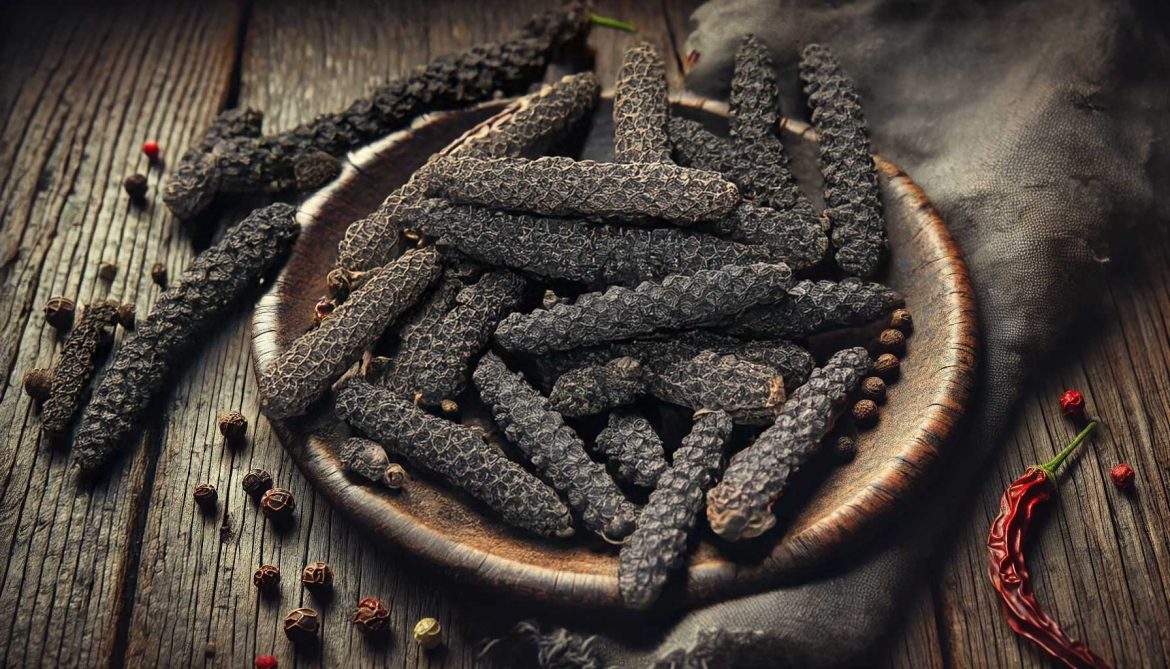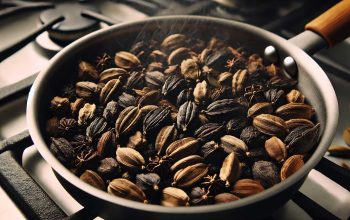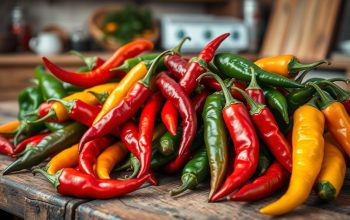From Ayurveda to the Table: Exploring the Power of Pippali Pepper
Pippali pepper, also known as long pepper or Piper longum, has held a valued place in Ayurvedic medicine and traditional Indian cuisine for centuries. This spice not only adds a distinctive, warming flavor to dishes but is also packed with health benefits that are central to Ayurveda’s holistic approach. Pippali’s warming, pungent qualities make it a staple for digestive health, respiratory support, and immune fortification. Today, modern culinary enthusiasts and wellness advocates alike are rediscovering the benefits of this ancient spice, integrating it into their daily lives for both its health-promoting properties and its unique flavor.
The Origins of Pippali Pepper: A Spice Rooted in Tradition
Pippali pepper, derived from the fruit of the Piper longum plant, is indigenous to India and has been a cornerstone of Ayurvedic medicine for over 3,000 years. Unlike the more common black pepper, which comes from the Piper nigrum plant, Pippali pepper has an elongated shape and a slightly sweeter, more complex flavor profile. Known as one of the “three pungent spices” in Ayurveda, Pippali is often combined with black pepper and ginger to create Trikatu, a traditional remedy used to kindle digestive fire and support respiratory health.
Key Historical Facts about Pippali Pepper
| Aspect |
Details |
| Geographical Origin |
India, specifically regions with tropical climates |
| Ancient Uses |
Ayurvedic medicine, traditional Indian dishes, ancient Greek and Roman remedies |
| Introduction to the West |
Gained popularity through trade with Europe in antiquity |
Pippali was even prized in ancient Greece and Rome for its medicinal and culinary uses. As early as the 4th century BCE, it was traded along spice routes, making its way into Middle Eastern and Mediterranean cuisine. Today, Pippali continues to be celebrated not only in Indian kitchens but also among chefs and wellness enthusiasts worldwide who value its complex taste and potent health benefits.
Health Benefits of Pippali Pepper: Ayurveda’s Power Spice
Ayurveda categorizes Pippali as a rasayana, or rejuvenative herb, particularly beneficial for maintaining respiratory health, digestive balance, and longevity. Let’s explore its primary health benefits and why Ayurveda holds this spice in such high regard.
Respiratory Health
Pippali is considered highly effective for respiratory support. Its warming properties help in clearing excess mucus, making it beneficial for alleviating symptoms of cough, congestion, and seasonal allergies.
Important Note: Ayurvedic practitioners often recommend Pippali in the form of herbal teas or decoctions to support respiratory health, especially during colder months.
Digestive Support
One of Pippali’s hallmark benefits is its ability to ignite Agni, the digestive fire in Ayurveda. By promoting digestion and nutrient absorption, Pippali helps prevent bloating, gas, and indigestion.
Immune System Boost
Pippali is thought to enhance immunity by acting as a natural antioxidant. Its anti-inflammatory properties also help the body manage oxidative stress, promoting overall vitality.
“Pippali’s warming and rejuvenating qualities make it an invaluable spice in Ayurvedic health regimens, from boosting digestion to enhancing respiratory well-being.”
How Pippali Pepper is Used in Ayurveda
In Ayurveda, Pippali is often used in various formulations that combine multiple herbs to create a balanced effect. Two notable examples include:
- Trikatu: A blend of Pippali, black pepper, and dried ginger that aids digestion and enhances metabolic activity.
- Chyawanprash: An Ayurvedic jam that includes Pippali, amla, and other herbs, traditionally used as a rejuvenative tonic for boosting immunity.
Culinary Applications: Adding Pippali Pepper to Your Kitchen
Pippali pepper offers a subtly sweet, slightly spicy flavor that complements various dishes. Its unique taste makes it ideal for both savory and sweet recipes, from curries to herbal teas. Here are some ideas for incorporating Pippali pepper into your cooking routine:
- Spice Blends: Use Pippali in place of or alongside black pepper in masala blends for an extra layer of flavor.
- Soups and Stews: Add Pippali to soups or stews to bring warmth and complexity, especially in winter dishes.
- Desserts: Pippali’s mild sweetness works beautifully in desserts like spiced cookies, cakes, and chai-infused treats.
- Hot Drinks: Add ground Pippali to herbal teas or turmeric lattes for a warming, healthful boost.
Comparison of Flavor Profiles: Black Pepper vs. Pippali Pepper
| Characteristic |
Black Pepper |
Pippali Pepper |
| Flavor |
Pungent, sharp, slightly bitter |
Warming, slightly sweet, complex |
| Common Use |
General seasoning, savory dishes |
Spice blends, Ayurvedic preparations, sweet dishes |
Tips for Cooking with Pippali Pepper
- Use Pippali sparingly, as its taste is potent compared to regular black pepper.
- Grind whole Pippali just before use to preserve its natural oils and aroma.
- Pair Pippali with other warming spices like cinnamon and ginger to create well-balanced, aromatic dishes.
Sourcing and Storing Pippali Pepper
Finding high-quality Pippali pepper can be challenging, but it’s often available in specialty spice stores or online Ayurvedic suppliers. Because of its unique characteristics, it’s essential to store Pippali properly to maintain its potency.
Storage Tip: Store Pippali in an airtight container in a cool, dark place, away from direct sunlight, to prevent loss of flavor and medicinal properties.
Pippali Pepper Sourcing Tips
- Buy Whole Pippali: Whole pepper retains its flavor longer than ground pepper.
- Look for Organic Options: Organic Pippali ensures you’re getting a product free from pesticides and additives.
- Avoid Moisture Exposure: Humidity can diminish the spice’s quality, so keep it dry and away from damp storage areas.
Incorporating Pippali into Modern Wellness Practices
Beyond its culinary applications, Pippali is making its way into modern wellness routines for its potential benefits in natural healing. From herbal tonics to DIY spice blends, here are some ways Pippali is being used today:
- Digestive Tonics: Used in small amounts, Pippali is a natural digestive aid that can be added to herbal teas or warm water before meals.
- Respiratory Balms: Pippali’s essential oils are used in Ayurvedic balms to support clear breathing.
- Immune-Boosting Elixirs: Mixed with honey and ginger, Pippali creates a powerful immunity-enhancing blend, often taken during cold seasons.
“Incorporating Pippali into everyday wellness is a testament to Ayurveda’s timeless approach to health, blending tradition with modern applications.”
The Lasting Appeal of Pippali Pepper: Tradition Meets Modernity
Pippali pepper stands out as a unique spice, one that marries ancient medicinal wisdom with modern culinary innovation. As health-conscious consumers seek natural solutions for wellness, the appeal of Pippali continues to grow. Its myriad benefits, from respiratory support to digestive aid, make it a versatile addition to any wellness-focused kitchen.
Whether you’re an avid home cook, a wellness enthusiast, or simply someone interested in adding depth to your culinary repertoire, Pippali offers a rich, multifaceted experience. By exploring the power of this spice, we can appreciate the longstanding wisdom of Ayurveda while enriching our daily lives with flavor and wellness.



